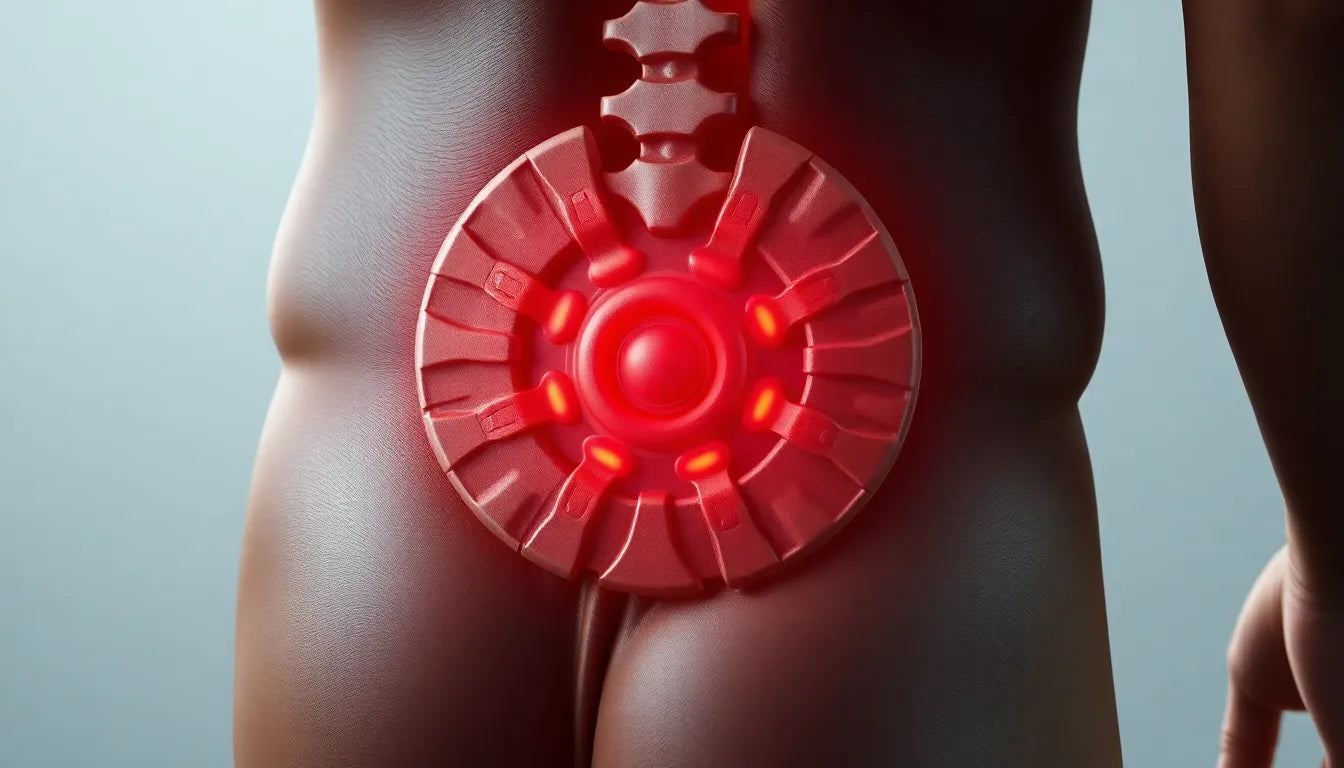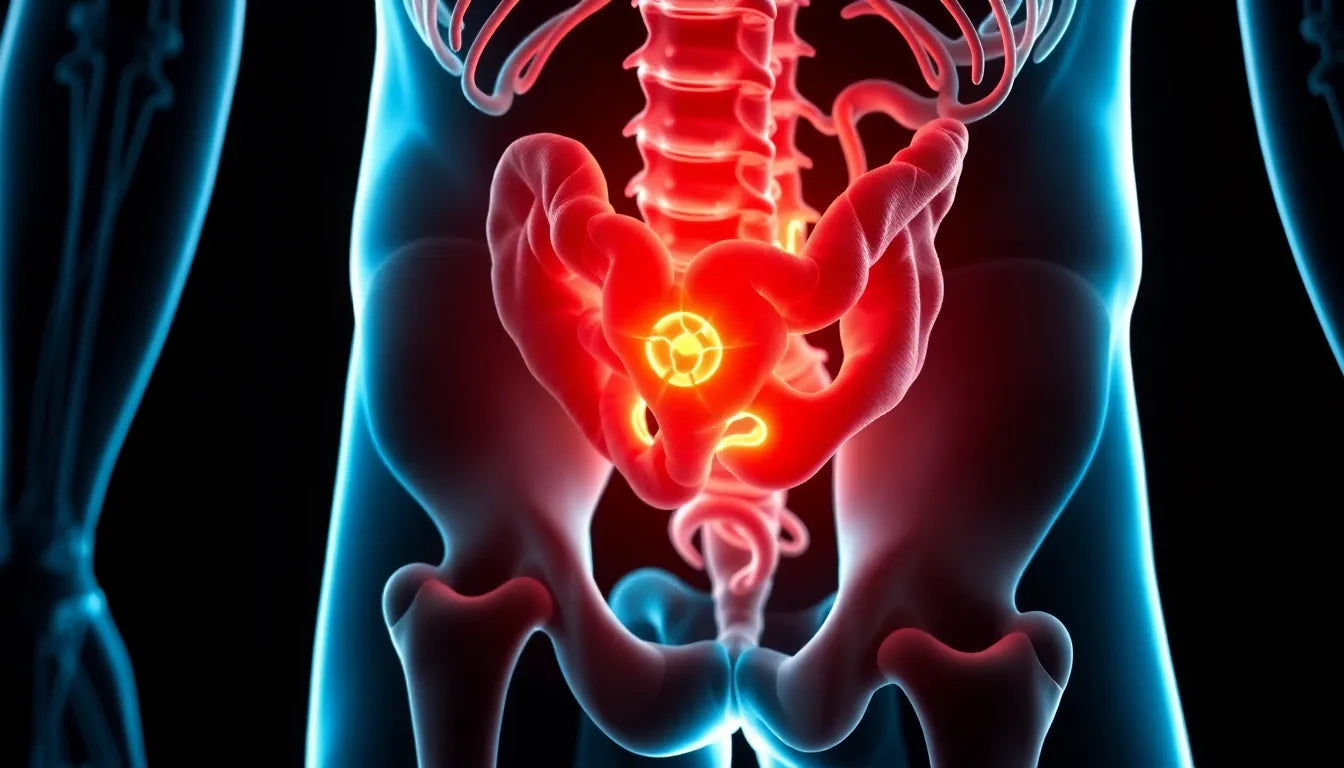Herniated disc pain is a common ailment that can significantly disrupt daily life, affecting everything from simple movements to overall quality of life. As individuals search for effective solutions to manage this discomfort, acupuncture emerges as an alternative therapy gaining attention for its potential to alleviate the symptoms associated with herniated discs.
Understanding herniated disc symptoms
A herniated disc occurs when the soft inner gel of the spinal disc pushes through a crack in the tougher exterior casing. This condition can lead to a range of symptoms, including intense pain, numbness, and weakness, particularly in the arms or legs, depending on the location of the herniation. Traditional treatments often involve medication or surgery, each with its own set of limitations and potential side effects. While medications can provide temporary relief, they may not address the root cause and can lead to dependency issues. Surgery, on the other hand, carries risks and requires significant recovery time, making many patients hesitant to pursue this option.
Exploring acupuncture as a treatment option
In light of these challenges, acupuncture has gained traction as a viable treatment alternative for herniated disc pain. This ancient practice involves the insertion of thin needles into specific points on the body to stimulate the nervous system, potentially offering relief without the side effects associated with conventional treatments. The purpose of this post is to delve into how acupuncture can serve as an effective option for those suffering from herniated disc pain, supported by an increasing body of evidence that highlights its efficacy.
Recent studies and systematic reviews have shown promising results, indicating that acupuncture not only reduces pain but also improves functional outcomes. This growing body of research supports the notion that acupuncture can be a powerful tool in the management of herniated disc symptoms, providing a complementary or alternative option to traditional medical interventions.
Exploring the effectiveness of acupuncture for herniated discs
Acupuncture has been the subject of numerous studies, many of which highlight its effectiveness in treating herniated disc pain. A systematic review and meta-analysis published on PubMed provides compelling evidence, showing that acupuncture has a higher total effective rate compared to traditional treatments like lumbar traction and non-steroidal anti-inflammatory drugs (NSAIDs) such as ibuprofen and meloxicam. The study reports significant improvements in both pain reduction and functional outcomes, positioning acupuncture as a promising alternative for those seeking relief from herniated disc symptoms.
Further supporting these findings, a study by the National Certification Commission for Acupuncture and Oriental Medicine (NCCAOM) demonstrated the efficacy of warm needle acupuncture, reporting a 93.3% overall effective rate. This method significantly reduces pro-inflammatory cytokines, which are often elevated in patients with herniated discs, leading to improved symptom recovery compared to control groups.
Moreover, Barricaid's blog review of 13 randomized controlled trials emphasizes acupuncture's superiority over no treatment or sham acupuncture in reducing pain and disability in patients with lumbar disc herniation. These studies collectively reinforce the potential of acupuncture as a viable treatment option for managing herniated disc pain.
Understanding the mechanism and benefits of acupuncture
Acupuncture works by inserting thin needles into specific acupoints on the body, which stimulates the nervous system and triggers a cascade of beneficial physiological responses. This process leads to the release of natural pain-relieving chemicals such as endorphins and enkephalins. These substances not only help alleviate pain but also promote increased blood flow and muscle relaxation around the affected area, thus facilitating healing.
In addition to traditional acupuncture, electro-acupuncture is a technique that involves passing a small electrical current through the needles. This enhances the release of endorphins, providing further pain reduction and improving overall treatment efficacy. Such mechanisms highlight why acupuncture can be a powerful tool in the management of herniated disc symptoms.
Insights from clinical trials and studies
Clinical trials have further elucidated the benefits of acupuncture for herniated discs. A study conducted at Jinan Number Three People’s Hospital involved 90 patients and demonstrated that combining warm needle acupuncture with postural adjustments resulted in a higher effective rate and better symptom recovery than postural adjustments alone. This combination approach underscores the potential for acupuncture to complement other therapeutic modalities.
Additionally, research from Nantong Hospital of Traditional Chinese Medicine explored acupuncture's role in post-operative pain management following lumbar disc surgery. The study revealed that acupuncture was more effective than conventional care, with a total effective rate of 96.36% compared to 83.64% in the conventional group. These findings suggest that acupuncture not only aids in managing chronic herniated disc pain but also serves as a beneficial adjunct in post-surgical recovery.
Overall, the growing body of evidence supports acupuncture as an effective treatment option for herniated disc pain, offering a complementary or alternative solution to conventional therapies. As more studies continue to validate its efficacy, acupuncture is poised to play an increasingly important role in the comprehensive management of herniated disc symptoms.
Practical considerations and safety of acupuncture for herniated disc pain
For those considering acupuncture as a treatment for herniated disc pain, understanding the process and safety aspects is crucial. A typical acupuncture session begins with an initial evaluation and physical examination, where the practitioner assesses the patient's symptoms and medical history. This comprehensive approach ensures that the treatment is tailored to the individual's needs, maximizing the potential for relief.
When performed by licensed professionals, acupuncture is generally considered safe. However, potential risks include minor bleeding or bruising at the needle sites, and in rare cases, infection. To minimize these risks, it is essential to choose a qualified practitioner who adheres to strict hygiene standards. Patients with specific conditions, such as pregnancy or those taking blood-thinning medications, should consult their healthcare providers before undergoing acupuncture to ensure it is a suitable option for them.
Comparative effectiveness of acupuncture
To provide a clearer picture of acupuncture's effectiveness, here is a comparison of its success rates against other treatments based on various studies:
| Treatment Type | Effectiveness Rate |
|---|---|
| Acupuncture | 93.3% (NCCAOM study) |
| Lumbar Traction | Less effective than acupuncture (PubMed review) |
| NSAIDs (Ibuprofen, Meloxicam) | Less effective than acupuncture (PubMed review) |
| Conventional Post-operative Care | 83.64% (Nantong Hospital study) |
This table underscores acupuncture's potential as a highly effective treatment for herniated disc pain, offering a viable alternative or complement to traditional therapies.
Frequently Asked Questions
Q1: How soon can I expect to see results from acupuncture for herniated disc pain?
A1: Results can vary, but many patients report improvements within a few sessions. Consistency and adherence to the treatment plan are key to achieving the best outcomes.
Q2: Is acupuncture covered by insurance for herniated disc treatment?
A2: Coverage depends on the insurance provider and policy. It's advisable to check with your insurer regarding acupuncture benefits to understand your coverage options.
Q3: Can acupuncture completely cure a herniated disc?
A3: While acupuncture can significantly alleviate pain and improve function, it may not cure the underlying disc herniation. It is often used as part of a comprehensive treatment plan that may include other therapies.
Q4: Are there any side effects of acupuncture?
A4: Side effects are generally minimal but can include soreness, minor bleeding, or bruising at needle sites. Serious side effects are rare when performed by a qualified practitioner, highlighting the importance of choosing a licensed acupuncturist.
In conclusion, acupuncture offers a promising alternative for those seeking relief from herniated disc pain. Its effectiveness, coupled with a low risk of side effects, makes it an attractive option for many patients. As always, consulting with healthcare professionals is recommended to tailor the treatment to individual needs and ensure the best possible outcomes.
Sources
- Systematic Review and Meta-Analysis on Acupuncture for Lumbar Disc Herniation. PubMed.
- Efficacy of Warm Needle Acupuncture for Lumbar Disc Herniations. National Certification Commission for Acupuncture and Oriental Medicine (NCCAOM).
- Acupuncture for Herniated Disc Pain: A Review of Randomized Controlled Trials. Barricaid Blog.
- Warm Needle Acupuncture and Postural Adjustments for Herniated Lumbar Discs. Jinan Number Three People’s Hospital.
- Acupuncture for Post-Operative Pain Management in Lumbar Disc Surgery. Nantong Hospital of Traditional Chinese Medicine.


















